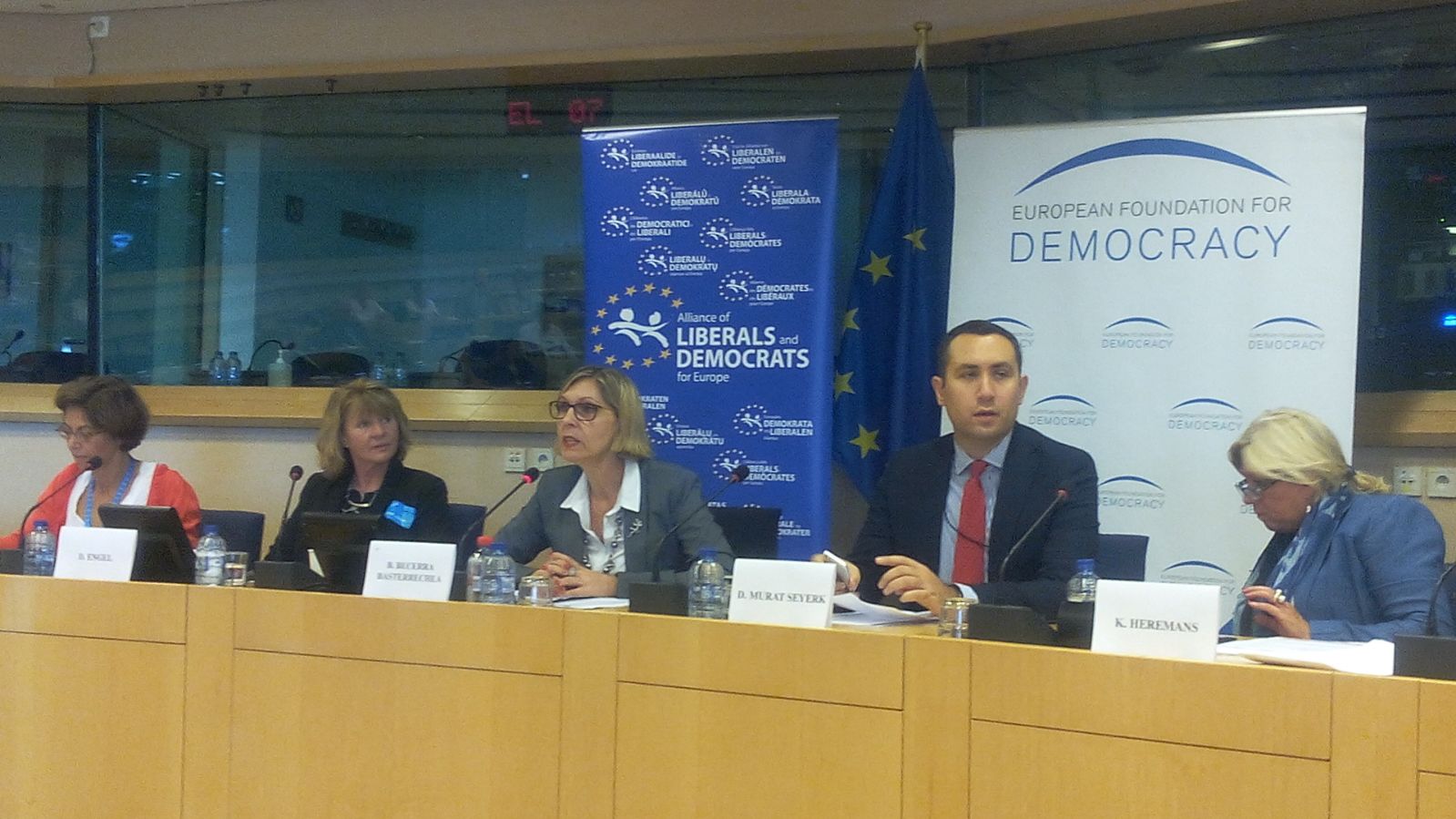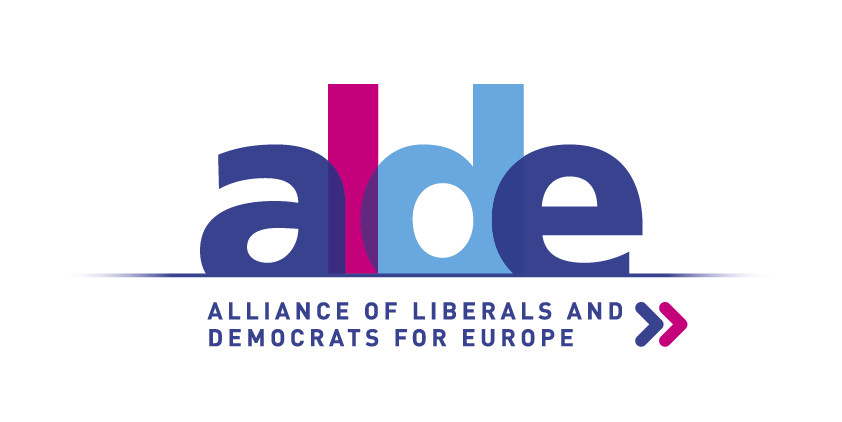
08 Sep Radicalisation: the role of young people and women
Hoy he tenido la oportunidad de acoger en el Parlamento Europeo un acto sobre radicalización -bajo el título Radicalisation prevention: empowering young people– en el que he explicado la importancia de crear políticas comunes y tejer redes europeas que detecten y prevengan este fenómeno tan nocivo. Muchas mujeres están liderando proyectos en esta línea, y no es casual: el papel de la mujer es clave. Para mí ha sido un placer contar con la presencia de Dawn Engle, cofundadora y directora ejecutiva de PeaceJam Foundation; con Demir Murat Sayrek, Senior Policy Advisor de la European Foundation for Democracy; Karin Heremans, co presidenta de la Radicalisation Awareness Network (RAN), Grupo de Trabajo de Educación; Alexandra Antoniadis, de la Dirección General de Interior y Migración, dependiente de la Comisión Europea; y Rodrigo Ballester, del gabinete de Tibor Navracsics, comisario europeo de Educación, Cultura, Juventud y Deporte.
Dejo a continuación el texto de mi intervención:
I would like to welcome all guests and speakers for your presence here today. We will discuss about the successful initiatives of peace-building programmes and effective policies for mentoring youth to change the world. This programmes are aimed to prevent widespread radicalisation of youth and empowering youth leaders with messages of peace. This young leaders count with the guidance, support and leadership of a growing network of what is now 14 inspiring Nobel Peace Prize Laureates.
These programmes are more needed than ever because we face and we need to confront rising extremism, terror and bigotry with shared supreme values of democracy, freedom, solidarity and the promotion and defense of human rights.
Figures speak themselves: According to Europol in 2015, 151 people died and over 360 were injured as a result of terrorist attacks in the EU. 1077 individuals were arrested in the EU for terrorism-related offences. In addition around 5000 Europeans have travelled to Iraq and Syria to take up the call to arms. Only in my country, Spain, during the last 4 years, there has been more than 150 individuals arrested in relation with jihadist terrorism and radicalisation processes. The average age was 31 years old at the moment of detention.
So, why is it so important to count with specific preventive programmes against radicalisation addressed to young people? Because the typical jihadist foreign fighter is a male between 18 and 29 years old.
DAESH propaganda has addressed mainly to young people around the world, and in parallel there is a specific campaign to mobilize women. Unfortunately the campaigns are being successful, with a spectacular increased trend of women joining DAESH. In Spain the trend has passed from 0 to 17% in barely some years. Women who are even younger than man, with 22 years average, nine less than man.
That is why gender must be a key issue too. DAESH has been openly calling on women from Western nations to travel to territory under its control even without a male guardian. More women are increasingly joining up with 40% of Dutch fighters being female. While not necessarily used on the front line, the women are instead used to recruit more people to join Daesh and become jihadi brides.
From the other hand it is noted the rise in nationalist (xenophobic), racist and anti-Semitic sentiments leading to increased acts of right-wing extremism. A survey carried out in my Spain by Pew Research Center in April 2016 shows that after the Paris and Brussels attacks, the negative attitudes against Muslims have increased and are shared by 50% of Spaniards. Islamophobia and religious violent extremism are two sides of the same coin. With the rise of anti-Muslim sentiment in the West, Daesh creates a perfect breeding ground for recruitment. Both types of extremist ideologies need to be challenged.
These are the reasons to focus our efforts in 2 key issues: young and women. And all of us have to add our effort and tools to face it, from institutional, political and personal point of view. I am currently pushing for a Pilot Project at EU level to highlight the need for a specific European Policy focused in the role that women play on the Fight Against Radicalization. Women are agents of change. Women are leaders, mothers and the gatekeepers of their communities, and thus essential actors in countering extremism. This panel today is a wonderful example about what I am talking about. We are ALL women. We all together must push for a specific gender approach, something that unfortunately is not sufficiently being taken into account today by the EU institutions. For that reason I am pushing at EU level all my efforts in order to strength the current policies and address the key issue of gender approach. Currently I am developing the first European Network of women fighting together against radicalisation. This innovative initiative is called AWARE (Alliance of Women Against Radicalisation and Extremism). It will be a digital platform to exchange, foster and spread successful European initiatives against radicalisation focused on the crucial role played by women. The online platform meant to be the information meeting point to all the individual actors, bodies and organisations working against female radicalisation and extremism. I invite all of you to join it and to support the statement. Please be AWARE!
We must share and put together successful ideas, programmes and initiatives from the academic, private and institutional side. From political leaders to successful entrepreneurs and Nobel prices. And that is why we have organized this event to bring together and share the best examples and most successful initiatives from the different sides.


